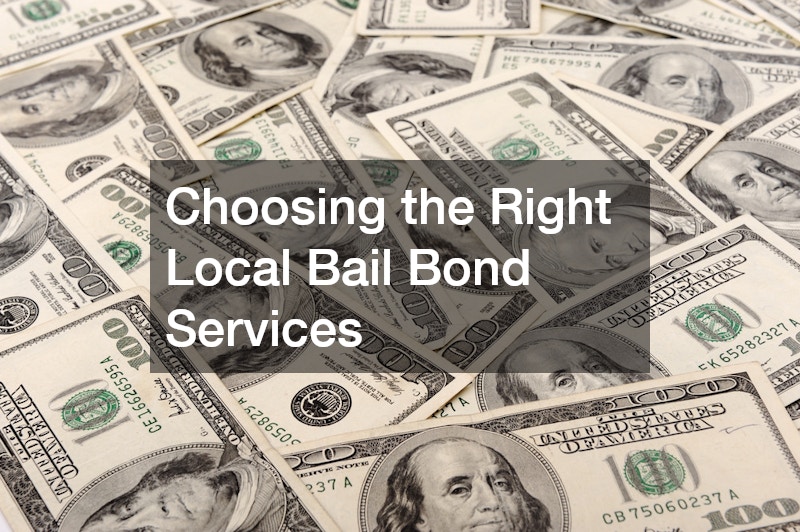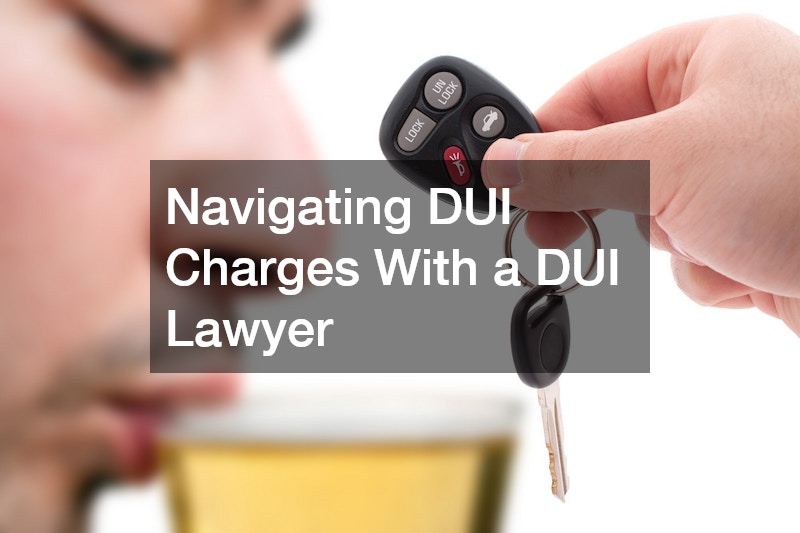Handling a DUI effectively requires both sensitivity and expertise. A person facing a charge of driving under the influence often has a mix of legal, emotional, and practical concerns. Whether they’re navigating first-time charges or repeat offenses, these individuals are usually unsure where to turn. A DUI arrest sets off a chain reaction—license suspension, potential jail time, steep fines, and lasting consequences for one’s personal and professional life. It’s not just about answering legal questions; it’s about providing a holistic response that takes into account addiction, recovery, and family dynamics.
In most DUI cases, a single event quickly spirals into involvement with multiple professionals. The legal process alone is complicated, but it often overlaps with health and family matters. From addiction specialists to lawyers and bail bond agents, the average person may find themselves engaging with unfamiliar systems and services all at once. This makes understanding how to effectively handle common questions more than just helpful—it’s essential.
Not all DUI cases are alike. The nature of the arrest, prior convictions, and involvement of other factors (like drugs or minors in the vehicle) can dramatically alter the trajectory of a case. Tailored responses are critical. A DUI in one state might result in a very different legal outcome than in another, so local expertise matters. Even within the same jurisdiction, the outcomes may vary based on the approach taken after arrest.
One of the most common questions asked is: “What happens next?” It’s a fair concern. Most people aren’t prepared for the immediate and long-term consequences of a DUI. They want to know if they’ll go to jail, how much it will cost, and what they can do to regain their driving privileges. Addressing these questions comprehensively—and with empathy—can have a lasting effect on someone’s recovery and legal future.
Some individuals facing DUI charges also struggle with addiction. In these cases, they may need more than just a lawyer. They need pathways to treatment and understanding from all involved professionals. Answering these questions effectively in these cases also involves collaboration across legal, medical, and mental health fields.
There’s also the issue of stigma. DUI charges can be isolating, leading to strained family relationships and job loss. Many people are embarrassed to ask for help or don’t know where to begin. Providing non-judgmental, informed responses to their questions can create a safe space for recovery and resolution.
As we move through the common questions faced by professionals in this field, we’ll examine them through different lenses—addiction, criminal law, family law, and more. By the end, you’ll have a well-rounded view of how to support someone caught in the legal and emotional crosscurrents of a DUI charge.
Finding Effective Addiction Professionals
An addiction professional often field DUI questions from individuals who are confronting substance use for the first time. These clients may ask, “Does this mean I’m an alcoholic?” or “Do I need rehab now?” The role of an addiction counselor or therapist in these scenarios is to assess the individual’s substance use patterns, not just the single event of the DUI. They should provide clear, evidence-based responses while fostering a judgment-free environment.
Another common question is: “Can I use this DUI as a reason to finally get help?” The answer is often yes. A DUI can serve as a wake-up call, and addiction professionals are well-positioned to guide individuals toward treatment options such as outpatient therapy, residential rehab, or support groups. Their responses should balance accountability with compassion.
In addition, an addiction professional may find themselves collaborating with attorneys and family members to craft a recovery plan that aligns with court requirements. These coordinated efforts can reinforce a client’s commitment to sobriety while simultaneously improving their legal standing.
Transforming Your Life: Drug and Alcohol Rehab

At rehab centers, staff often hear questions like: “Will the court see my admission into rehab as a positive step?” and “Can entering treatment reduce my sentence?” These DUI questions reflect a desire for both legal leniency and personal healing. Effective responses highlight how entering a drug and alcohol rehab program demonstrates responsibility and a willingness to change.
Rehab professionals should also prepare clients for what to expect if they are mandated to complete a program. Some wonder, “How long will I be here?” or “Can I still work while in rehab?” The answers depend on the severity of their substance use and the type of program they’re entering. Being transparent while reinforcing the benefits of treatment helps clients stay committed.
They should also emphasize the long-term benefits of structured treatment, such as lower recidivism rates and better family relationships, when responding to DUI-related questions. This forward-looking approach can help clients focus beyond their immediate legal worries.
Preparing for Your Criminal Defense Lawyers Consultation
A criminal defense lawyer receive the broadest and most urgent DUI questions. “Am I going to jail?” and “What are my chances of getting this reduced?” top the list. These professionals need to balance realistic legal advice with reassurance. Each case is unique, so lawyers should explain the potential outcomes based on BAC levels, prior offenses, and local court practices.
Clients also often ask, “Should I plead guilty or fight the charge?” This is where experienced criminal defense lawyers become indispensable. They can evaluate whether procedural errors occurred, whether breathalyzer tests were administered properly, or whether field sobriety tests were lawful. Their answers should be thorough and rooted in both statute and case law.
Further, defense lawyers must help clients understand the collateral consequences of a DUI, such as employment barriers or license suspensions, and develop strategies to mitigate these issues. This comprehensive support makes their guidance even more valuable.
Choosing the Right Local Bail Bond Services

When someone is arrested for DUI, one of their DUI questions is, “How do I get out of jail?” This is where local bail bond services come in. Common questions include: “How much is bail for a DUI?” and “What happens if I miss my court date?” Bail bond agents must be clear about financial terms and legal obligations.
Clients may also ask, “Can I use collateral instead of cash?” or “How quickly can I post bail?” Responses should address both speed and responsibility, ensuring the accused understands the importance of complying with release conditions. Bail bond professionals play a crucial role in bridging the gap between jail and court.
Local bail bonds agents are often the first point of human contact after arrest. Their professionalism and clarity can ease anxiety, making a chaotic experience slightly more manageable for the accused and their families.
Hiring a Divorce and Family Law Attorney
Sometimes a DUI charge leads to family strain or custody disputes. A parent might ask a divorce and family law attorney, “Will this affect my custody rights?” or “Can my ex use this against me in court?” These serious dui questions demand measured, strategic responses.
Family law professionals must assess the specific facts of the case and how the DUI might impact the best interests of the child. In some cases, courts might require supervised visitation or substance abuse evaluations. The goal is to protect both parental rights and child welfare while providing clear legal guidance.
It’s also important for family law attorneys to collaborate with other professionals involved in the DUI case to ensure that court-approved parenting plans and visitation schedules reflect current realities and protect all parties involved.
Navigating DUI Charges With a DUI Lawyer

DUI questions for lawyers focus exclusively on defending against DUI charges. They are frequently asked, “What are my options?” or “Can I keep my license?” Their job is to offer a roadmap of potential legal outcomes, including diversion programs, plea bargains, and trial strategies. Clear, realistic communication is essential.
Other questions may include, “Will this stay on my record forever?” and “What can I do to avoid a conviction?” A DUI lawyer must be well-versed in state laws and procedural nuances. Their answers can offer hope, especially when paired with concrete steps like alcohol education courses or ignition interlock devices.
Because DUI law is so specialized, these attorneys often stay updated on evolving statutes, case law, and technologies like breathalyzers. This allows them to provide clients with up-to-date, strategic legal counsel.
Benefiting From Professional Bail Bond Services
Much like local bail bond professionals, broader a bail bond service address a range of logistical questions from clients and their families. One of the DUI questions people often ask, “How do bail bonds work?” and “Do I get my money back?” Educating clients on the differences between cash bail, surety bonds, and percentage-based systems is critical.
They may also wonder, “What happens if my case takes a long time?” or “Can someone else post bail for me?” The answers to these questions can ease anxiety during a difficult time. Reliable bail bond services make the legal process more navigable by explaining responsibilities and timelines.
In addition to offering clarity, a reputable bail bond service often maintain 24/7 availability, which provides peace of mind during what is usually an emotionally charged time.
Handling Car Towing

After a DUI arrest, the vehicle is often towed. One of the first questions individuals ask is, “Where is my car?” followed quickly by “How much will it cost to get it back?” Car towing companies must provide clear instructions about impound lots, release fees, and required documentation.
Some also ask these DUI questions: “What if my car was damaged during the tow?” or “Can someone else retrieve my vehicle for me?” These questions highlight the logistical challenges that follow a DUI arrest. Responsive, professional towing services can reduce stress and avoid further complications.
Additionally, towing companies should communicate with legal representatives when necessary, especially in cases where a towed vehicle may be considered evidence or require court-ordered holds.
Maximizing Your Compensation With Accident Attorneys
An attorney will ask some DUI questions involved a collision, accident; accident attorneys are brought in to handle civil claims. Their clients may ask, “Can I be sued for damages?” or “Will my insurance cover this?” Effective answers require an understanding of liability, insurance exclusions, and state-specific tort laws.
These attorneys should also be ready to answer, “What if I was also injured?” or “Can I countersue if the other driver was partially at fault?” These legal nuances require clear, honest guidance. Civil consequences can be as burdensome as criminal penalties, so early legal intervention matters.
They may also help coordinate with criminal defense attorneys to craft a unified defense strategy that minimizes both civil and criminal repercussions for their clients.
Building a Strong Defense With Your DWI Attorney
In some jurisdictions, DUI and DWI are different charges. Clients might ask, “What’s the difference between a DUI and a DWI?” or “Does a DWI carry harsher penalties?” DWI attorneys must clarify state definitions, thresholds, and penalties.
Further DUI questions may include, “Can I challenge the breath test results?” and “What happens if I refuse the test?” The answers often depend on implied consent laws and prior offenses. A well-prepared DWI attorney can help clients make informed decisions about plea options and legal defenses.
They also educate clients on license reinstatement processes, court-mandated education programs, and the possibility of expungement after fulfilling all obligations.
Responding Appropriately to These Questions
Responding effectively to these questions requires a team of professionals who can work together with accuracy, empathy, and urgency. From addiction professionals to an accident attorney, each has a unique role to play in guiding individuals through one of the most difficult experiences of their lives. While no one wants to be in a situation where these questions are necessary, the right support can turn a crisis into a turning point.
Understanding that DUI charges often touch every aspect of a person’s life is key. Legal penalties are just the beginning. Mental health, family structure, finances, and employment are all potentially affected. Each professional who answers a DUI question contributes to the direction that person’s future might take.
Clear, timely answers help reduce confusion and fear. Whether it’s a lawyer explaining plea options or a rehab counselor helping someone understand their drinking habits, the responses matter. Professionals must commit to delivering honest, helpful information in a language their clients understand.
Questions will often overlap. Someone might ask a DUI lawyer about treatment, or a bail bond agent about car retrieval. That’s why a collaborative approach between professionals is so vital. Together, they create a safety net that helps individuals stay accountable and feel supported.
The answers to these questions can also have a ripple effect on families. Children, spouses, and employers are often drawn into the situation, even if they weren’t directly involved. Handling these questions with care contributes to long-term healing and recovery.
Technology has made it easier to provide consistent information. Websites, hotlines, and online resources help ensure people get accurate answers quickly. Still, nothing replaces the personal touch of a well-informed, empathetic professional.
Ultimately, the goal is not just to handle the DUI charge but to help the person emerge from it stronger, wiser, and more supported. It takes a broad network of professionals to achieve that goal.
Every question answered well is an opportunity to change a life. Whether it’s the first arrest or one of many, the right information delivered at the right time can be transformative. For anyone working in this field, that’s a responsibility—and a privilege—not to be taken lightly.